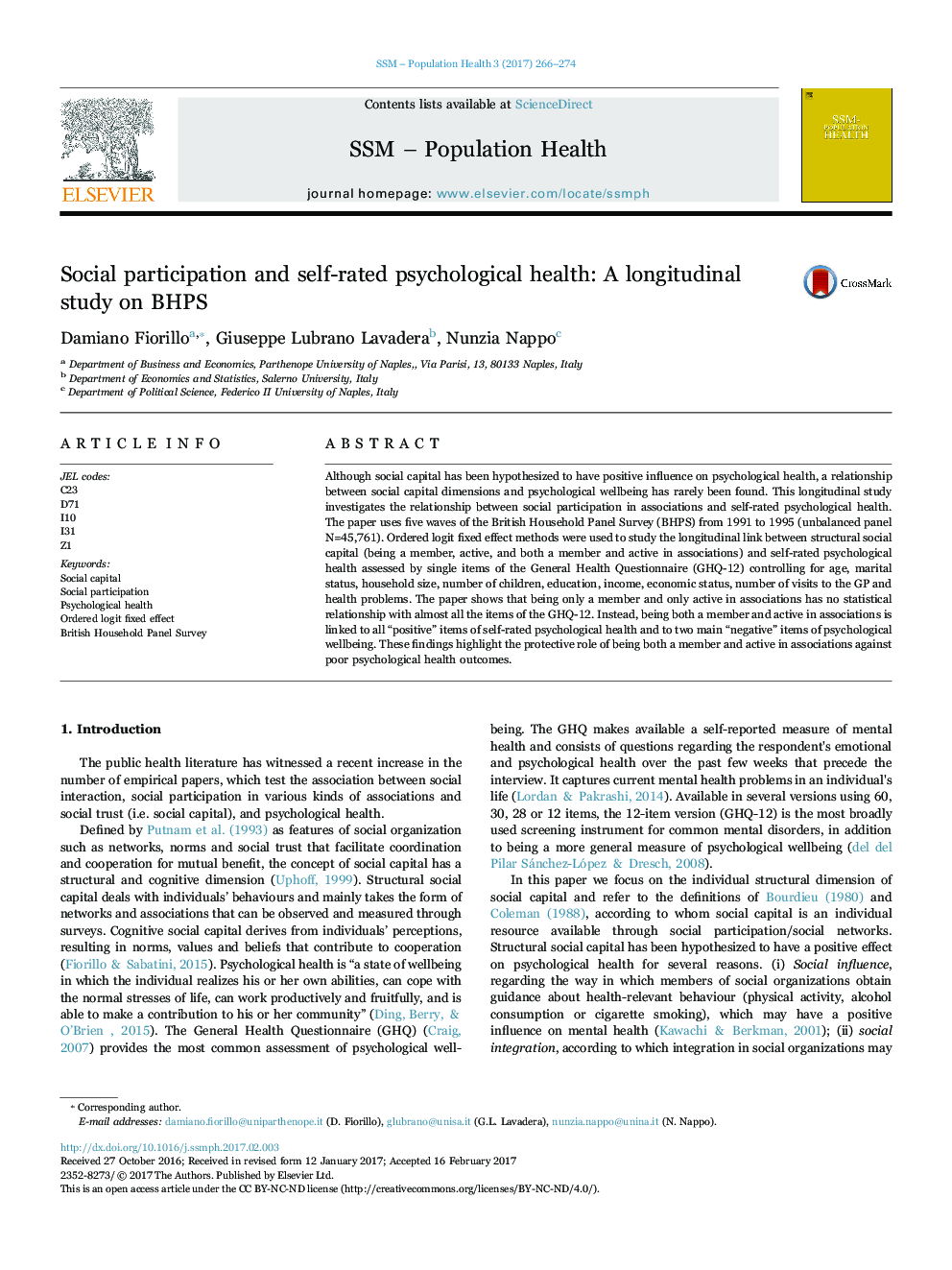| Article ID | Journal | Published Year | Pages | File Type |
|---|---|---|---|---|
| 5123257 | SSM - Population Health | 2017 | 9 Pages |
â¢The manuscript investigates the effects of social participation in associations on self-rated psychological health.â¢The paper uses five waves of the British Household Panel Survey from 1991 to 1995.â¢It utilizes single items of the General Health Questionnaire (GHQ-12).â¢It employs ordered logit fixed effect methods.â¢It finds that being both a member and active in associations matters for psychological health.
Although social capital has been hypothesized to have positive influence on psychological health, a relationship between social capital dimensions and psychological wellbeing has rarely been found. This longitudinal study investigates the relationship between social participation in associations and self-rated psychological health. The paper uses five waves of the British Household Panel Survey (BHPS) from 1991 to 1995 (unbalanced panel N=45,761). Ordered logit fixed effect methods were used to study the longitudinal link between structural social capital (being a member, active, and both a member and active in associations) and self-rated psychological health assessed by single items of the General Health Questionnaire (GHQ-12) controlling for age, marital status, household size, number of children, education, income, economic status, number of visits to the GP and health problems. The paper shows that being only a member and only active in associations has no statistical relationship with almost all the items of the GHQ-12. Instead, being both a member and active in associations is linked to all “positive” items of self-rated psychological health and to two main “negative” items of psychological wellbeing. These findings highlight the protective role of being both a member and active in associations against poor psychological health outcomes.
